With the advent of technology nowadays, it is easier than ever for aspiring rappers and producers to start writing, creating and recording their own professional rap songs at the comfort of their homes.
But, to achieve the perfect final result, some guidelines must be followed. These will also help you improve every day as a rapper and write outstanding music.
Keep reading to learn how to start making rap music. We will also share a few tips and tricks and guide you through the whole process of producing your first rap song, from writing the lyrics to recording the actual track.
Related: for more tips for beginning your career as a rapper, check out our How To Rap article.
The Basics
Let’s start with the basic skills that every rapper should work on improving from day one as well as the best practices to take in order to become a better artist.
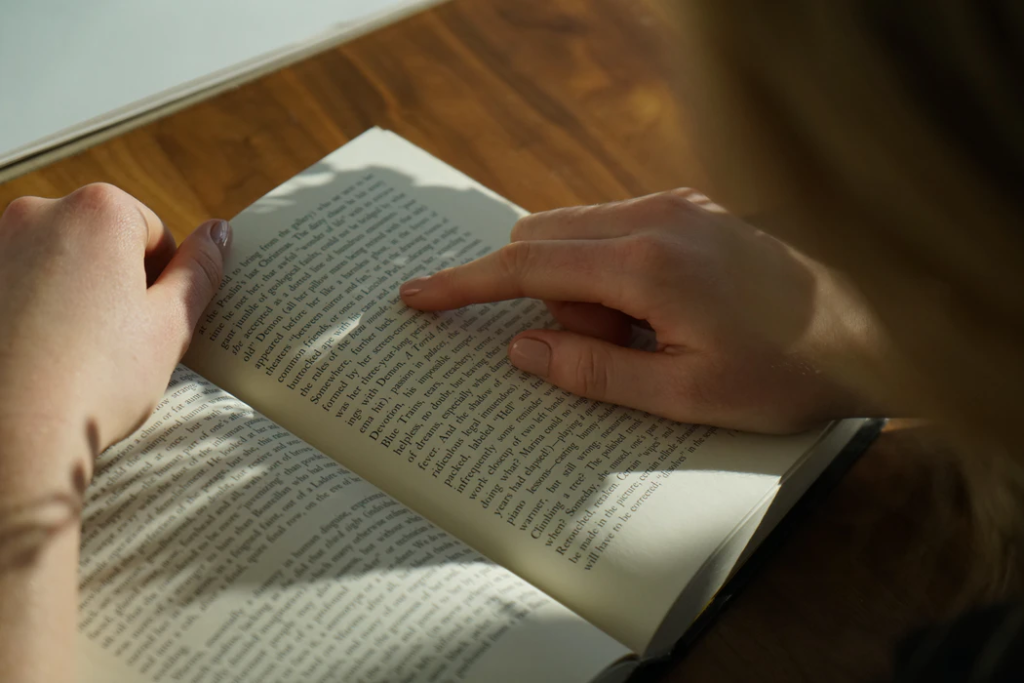
Start Improving Your Vocabulary
A rapper’s vocabulary must grow every day so he/she can write better song lyrics. Try reading a lot of books and poetry as well as doing some less obvious practices such as developing your conversation skills. Did you know that the famous rapper Eminem frequently reads and studies the dictionary to build up his way with words and be more creative?
Improve Your Flow
In the rap game, flow is all about how well a rapper can perform his/her lines with the proper pronunciation and without stumbling on any words. Speed is also an important factor when it comes to flow: you can train with a metronome daily to improve it. Check out our How To Flow In Rap article for more ideas on how to build up this skill.
Practice Freestyle
Even if freestyle rap is not your particular music style, it can help you be more creative and come up with ideas for lyrics faster, as well as improve your flow and build confidence in your performance. It is very simple to take the first steps: just search for a beat on YouTube and start rapping right away.
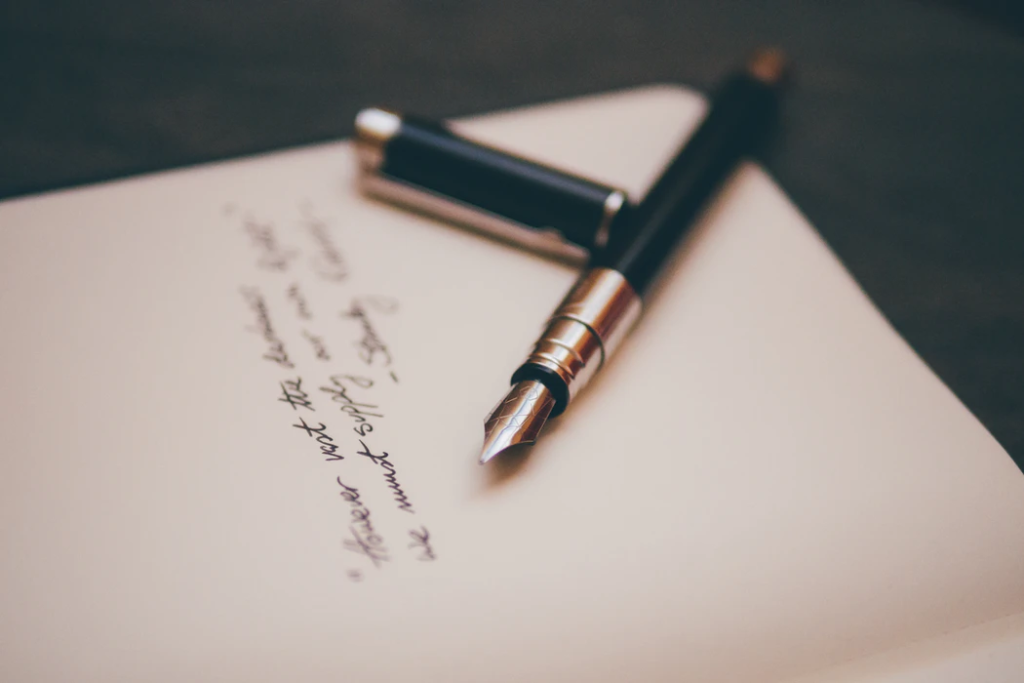
Write Everyday
No matter what, take some time off of your day to write. Even five minutes of daily writing practice could have a great impact on the quality of your rap songs.
We recommend a method called Object Writing described in the book Writing Better Lyrics by Pat Pattison. You simply take an object (concrete or abstract) or feeling, set up a timer (start with five minutes and build from there), and write everything you can think about the theme you’ve picked.
Don’t worry about structure or rhyming while doing this exercise: its purpose is to help you bypass any judgment and come up with ideas for your songs more easily. It is like brainstorming for songwriting.
Learn About Basic Music Theory
Basic music theory is not as complex as it sounds and can help you better write a rap song as well as indirectly improve your flow. Especially learn how to count bars. It is very simple: just pick a rap song you like and start counting each beat up to four from the beginning – each bar is made out of four beats.
Listen To A Lot Of Rap Music
As obvious as it may seem, it is always a great idea to listen to a lot of rap songs so you can get inspiration and pick up different influences from each rapper you like to use them to create your own style. Also, feel free to step out of your comfort zone and listen to different genres.
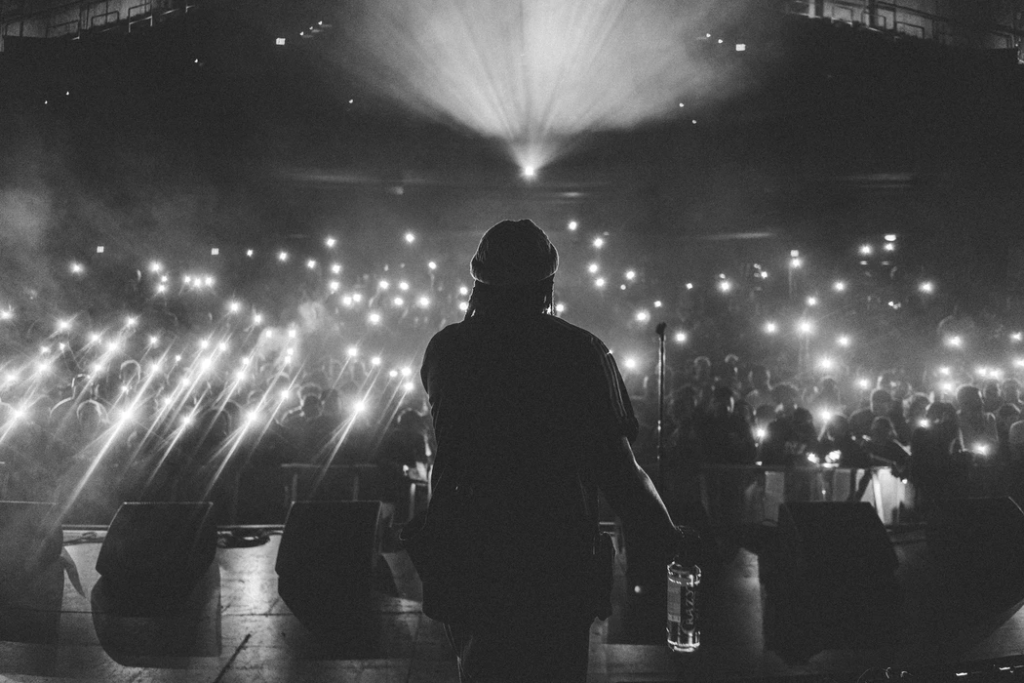
Get Confident With Rapping In Front Of An Audience
Build your confidence in rapping in front of an audience as soon as possible. Many rappers take too long to start showing their verses and lines to the world, this is a classic mistake. Try performing your rap songs to your friends or even recording videos for YouTube so you get more comfortable with the idea.
Network With Other Artists
Networking is essential in the rap game. You must put your face out there to achieve great things. Get to know other rappers, producers, and artists, share some tips and tricks about writing rap, and find people to collaborate with as soon as possible.
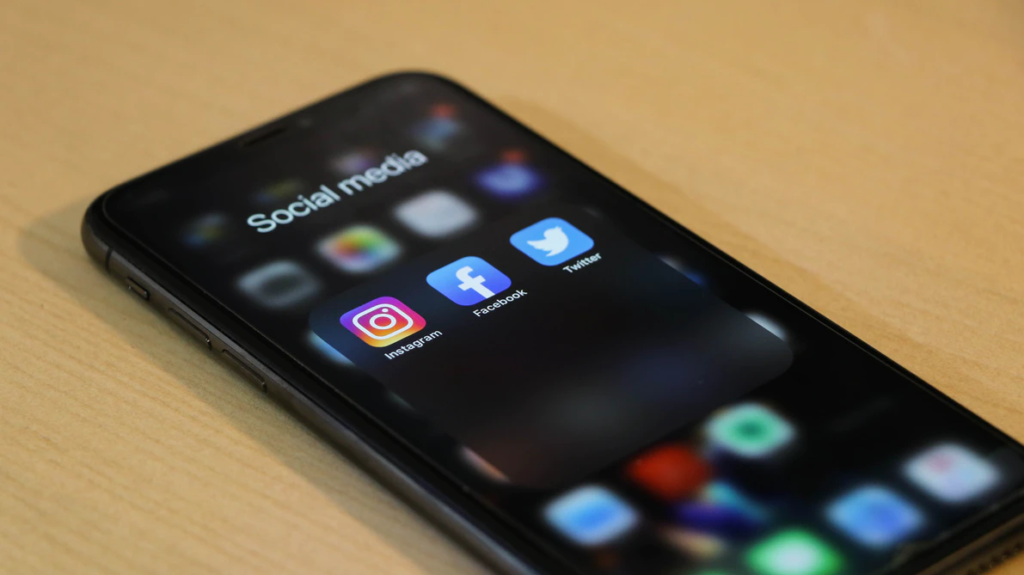
Improve Your Marketing Skills
While not directly connected to rapping, every artist nowadays needs to have at least some degree of marketing knowledge to know how to promote themselves and gather more fans. There is tons of free material on the internet to help you with that. Also, create a profile on each social media platform as soon as possible and focus on creating engaging content for your pages.
What Is The Process Of Creating My First Rap Song?
Now, we are going to break down all the steps you are going to need to take in order to write a rap song on your own from beginning to finish. Below, we will also show you in detail how to go through each step.
- Finding the perfect beat to write to or producing it yourself
- Writing the lyrics for the song and the basic structure.
- Making fine adjustments and rewriting anything if needed. This step is known as post-production.
- Recording the main vocals.
- Recording additional overdubs and vocal harmonies.
- Editing and tuning the vocals.
- Mixing and mastering.
Finding the Perfect Beat
It is important that, before you start writing the lyrics to your song, you define its genre and style and find the perfect beat to write it to. There are tons of free type beats on YouTube that you can use, but you can also check websites such as BeatStars and AirBit for even more options. Keep in mind that a lot of beats on these platforms are paid, though.
You can also hire a professional producer that will guide you through the whole process, but this option is much more expensive.
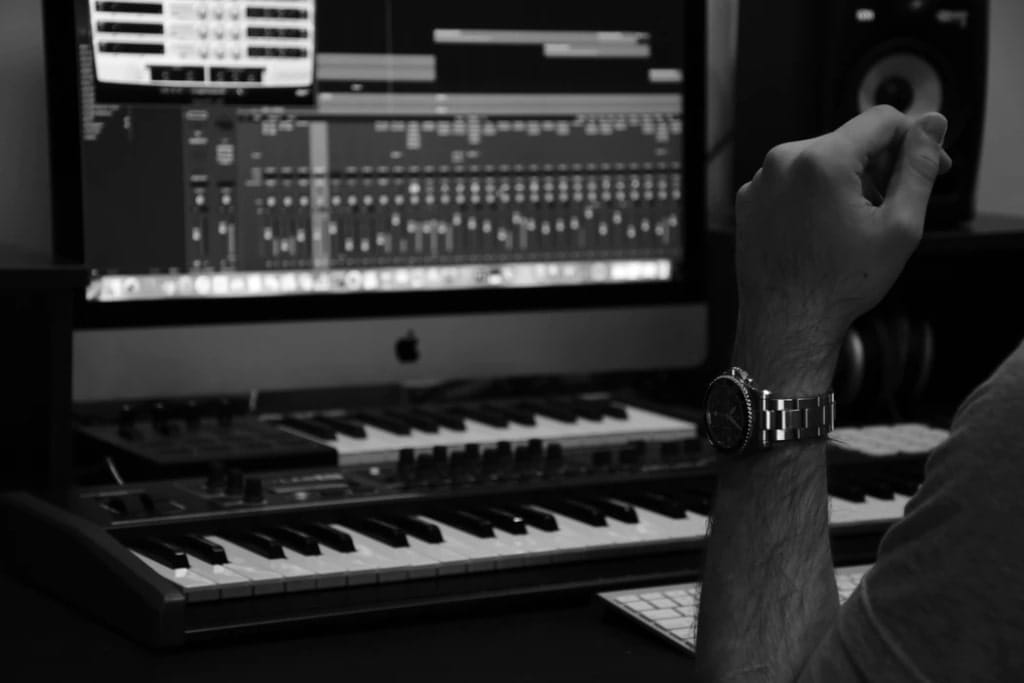
How Do I Produce My Own Beat?
It is great if you start learning how to produce your own beats so you have more control over the process. It is not so hard to learn music production since there are tons of tutorials on the internet nowadays.
Even so, you’re going to need a few pieces of equipment and tools. The most essential needed software is the digital audio workstation (DAW). It is the heart of any modern studio. For example, some famous DAWS are Logic Pro, FL Studio, Ableton, Pro Tools, etc. If you want to learn more about this type of software, head over to our Best DAW For Rap Music article.
You’re also going to need a pair of high-quality headphones or speakers to monitor your sound. We list a few options on our Best Studio Headphones 2021, Best Budget Studio Monitors, and Best Studio Monitors 2021. For beginners on a budget, we recommend going with headphones since monitors need proper sound treatment and soundproofing to work their best and that may end up being too expensive.
Last but not least, if you want to capture audio into your DAW, you’re going to need an interface. These are not essential if you’re just starting out but they are a great investment once you start learning how to record. We recommend checking our Best Audio Interface article to help you find the best option.
If you want to dive even deeper into the subject, we also suggest you take a look at our How to Produce Music article and our Music Production Course guide.
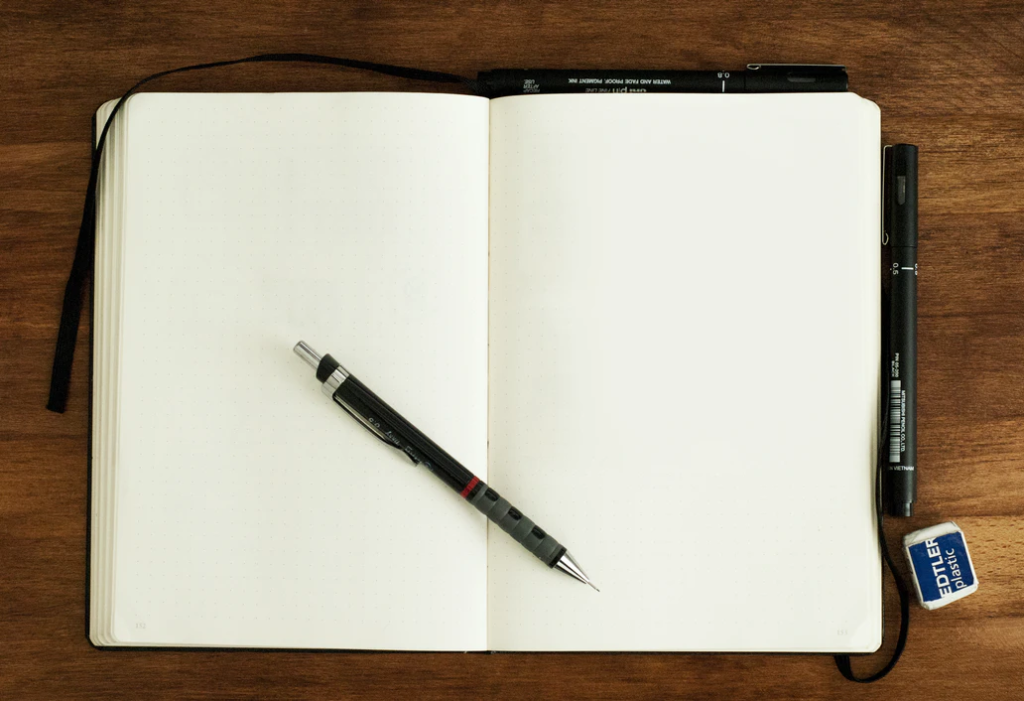
Writing Lyrics
The lyrics are unarguably the most important part of a rap song. It is essential that you improve your vocabulary and to practice writing on a daily basis. There are a few guidelines that may help you write great verses and we will list and explain them below.
Define The Theme Of Your Lyrics
The first step when writing lyrics for a rap song is to define its theme. Take a minute to brainstorm some ideas and write them down on top of your lyric page. Describe any emotion and feeling you want to pass on to your listeners. This step will help you a lot with songwriting and prevent you from having a creative block.
Rhyme Schemes and Structure
The rhyme schemes and structure can make or break rap songs’ lyrics. Pay attention to which words you choose when you write and how they interact with each other so as to achieve the best flow for your song.
There are tons of different types of rhymes. We suggest you use a lot of perfect rhymes in your verses and lines, that is, words that have the same number of syllables and have nearly identical sounds. These can make your verse/line feel very smooth.
Other types of rhyming are, for example, the slant and the eye rhyme. The first is when the words are not perfectly equal but still share some similarities. The latter is when both words look alike but require a little bit of adaptation to actually sound alike.
Now, let’s see an example of rhyme schemes:
Kanye West – Flashing Lights
A She don’t believe in shooting stars
A But she believe in shoes & cars
B Wood floors in the new apartment
B Couture from the store’s department
The letters at the side of each line refer to the rhyme scheme, in that case, AABB. Lines with the same letter rhyme with each other. Knowing about this will help you give more cohesion to your lyrics and your rhymes, as well as help you write a catchy chorus.
Learn How to Write Great Punchlines
Punchlines are one of the driving forces for rap lyrics. A punchline is a verse that conveys a strong message to the listener. Overall, there are two main factors they need to have in order to sound good: be thought-provoking and catchy.
If you want to learn more about punchlines, please head to our How To Write Rap Punchlines article where we explain in detail how to master this art.
Write a Powerful Chorus
The chorus is the part of your rap songs that the listener will remember the most. It needs to be catchy, relatable, and inviting for your listener to sing along with you. We recommend that you pay extra attention to this section and factors such as rhymes, melody, and structure.
Take a look at our How To Write A Rap Chorus guide to learn in a more in-depth way about what are the key characteristics your rap song chorus should have, how to create a good vocal melody, and a few more tips and tricks.
Define The Arrangement Clearly
Overall, most rap songs have the following sections in their arrangement:
- Intro: Usually features a hook to serve as an introduction for the song.
- Verse: The story-telling section of the rap song.
- Chorus: The main part of your rap song, where you want to deliver a strong message and have the listener singing along with you.
- Bridge: Where you can create a variation on the melody, instrumentation, or rhythm from the main theme of the song.
- Optional: pre-chorus and post-chorus.
Defining the arrangement of your rap song is an important part of your songwriting process because that way you can make the different sections of the track work better together and with your beat, so take a minute to think about it and write it down once you figure it out.
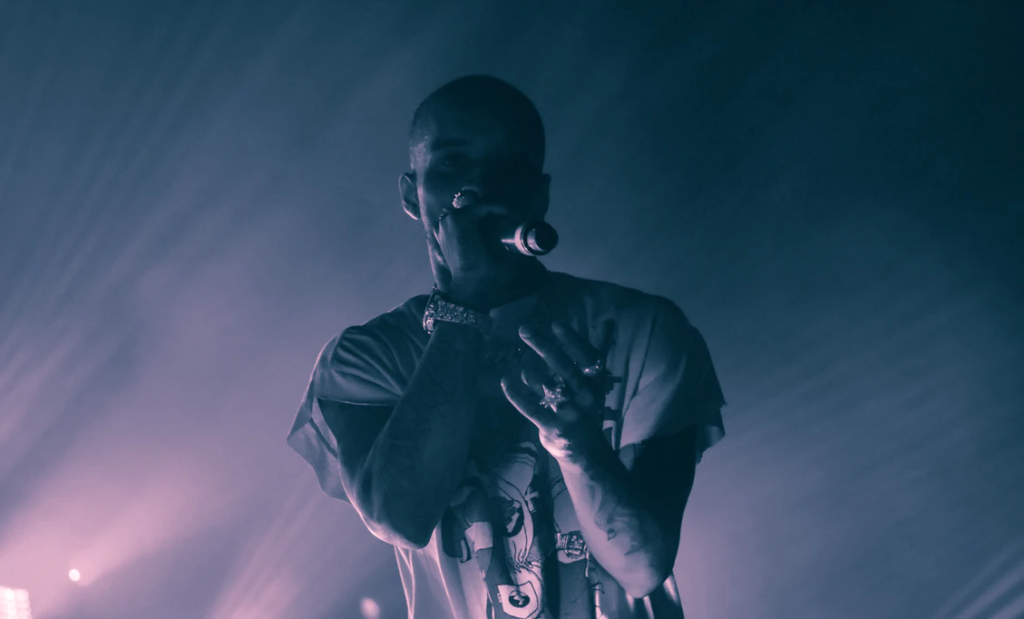
Bonus Tip: Train Your Performance and Your Flow Before Recording
Last but not least, practicing for several days before you record your songs and improving your flow on the particular track is very important to the final result.
Post-Production
Once you have your beat produced and your lyrics written, it is a great idea to go back and check if everything is working together properly. This step is pretty straightforward but make sure to not skip it since a few changes here and there could improve your rap song a lot. Don’t be afraid to rewrite any part of the lyrics if necessary.
Pay special attention to these points:
- How good the timing of the words in the lyrics matches the rhythm of the beat?
- How good is the word choice of the lyrics?
- How nicely is the vocal melody working with the beat?
- How smooth are the transitions from one section to another of the song?
- Is the chorus catchy and strong enough?
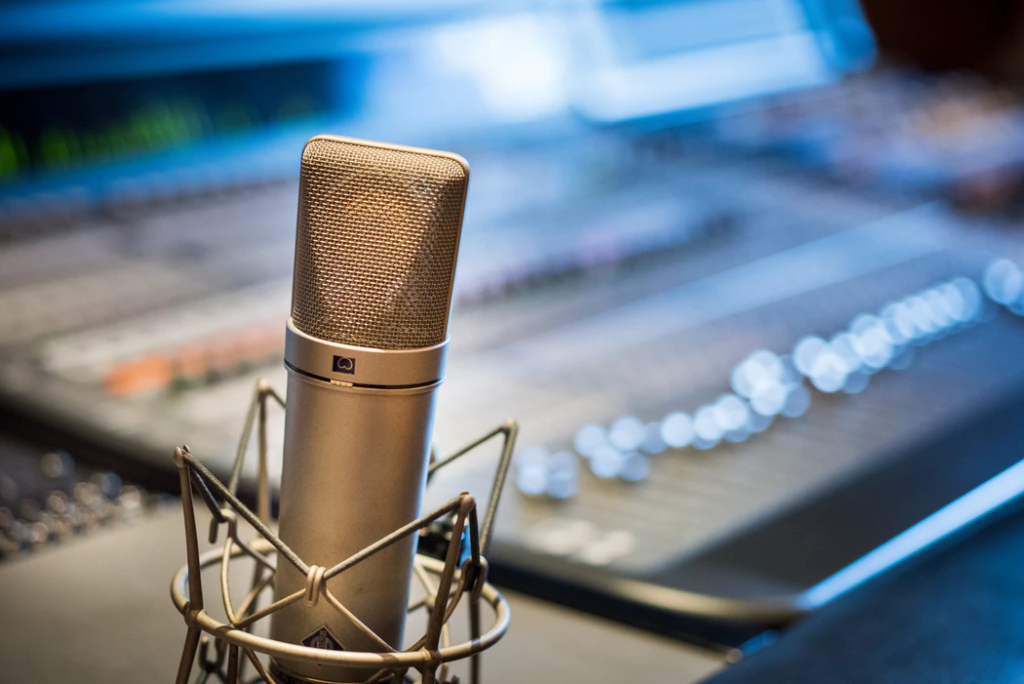
Recording Rap Vocals
Finally, it is time to capture the vocals for your rap song. This step is going to impact directly how good your final product is. If you want to record yourself at home, there are a few pieces of equipment you’re going to need:
- Digital Audio Workstation (DAW) software.
- Audio Interface
- Microphone,
- Additional equipment such as microphone stands and pop filters.
The most important piece of equipment here is, of course, the microphone. There are mainly two basic types of microphones you can choose from: dynamic and condenser. Dynamic mics are less prone to picking up background noises. Condenser mics have much more sensitivity and level of detail but they need to be used in a proper sound treated and soundproofed room to work their best.
Ultimately, the decision for the best choice should be based on how good your environment is, your voice style, and on your budget. If you’re looking for your first microphone, you can check some great options on our Best Microphone For Vocals Under 100 page.
You’re going to need an interface to plug your mic into your computer. In the previous topic “How Do I Produce My Own Beat?”, you can find links to the articles where we break down everything you need to know about DAWs and interfaces as well as show you different options for any type of budget.
After you have all the equipment you will need to record your rap song, here are some guidelines you must pay attention to in order to get great takes:
- Environment: choose a quiet environment with the least amount of background noise possible.
- Rapper positioning: depending on how you position yourself while you record, your sound may come out different. Run a few tests to find the proper positioning. A great trick is to sing into the microphone slightly off-axis as this may prevent problems with sibilance.
- Sound effects: many artists like to hear themselves with effects such as compression and reverb while they record. While this may help the performance a lot, make sure that the effects are not being recorded into the music and record your files dry.
- Record multiple takes: later in the editing process, you can mix and match these takes to achieve the perfect sound.
- Keep every take: going along with the last tip, don’t delete anything before you’re finished as takes that are not used could be precious for creating overdubs.
Related: How to Record Rap Vocals
Also, consider doing some overdubs and vocal harmonies. They are great to fill the space around your main vocals and help them shine even more. Follow the same guidelines we’ve just described to record these additional parts. Also, try switching up some notes in the melody to create more variation or rap, for instance, an octave, third, or fifth higher or lower in order to create more variation for your vocal harmonies.
Mixing And Mastering Your Rap Song
After writing and having your song recorded, it is time for mixing and mastering. This step is the most difficult one so if you’re a beginner, we recommend that you find a professional to mix and master your song for you.
If you still wanna do it for yourself, do research very extensively about the subject. Some YouTube channels such as Musician On A Mission and In The Mix may be helpful for your studies.
Frequently Asked Questions
What Equipment Do I Need To Start Rapping?
If you want to record your music on your own, you’re going to need a digital audio workstation (DAW) software, an interface, and a high-quality microphone, as well as a good pair of headphones to hear yourself and the beat.
What Equipment Do I Need To Produce My Own Rap Beats?
Should I Have The Beat Before Writing My Rap Song?
Why The Chorus Is So Important In A Rap Song?
What Are The Best Rap Courses?
How Can I Find a Beat For My Rap Song?
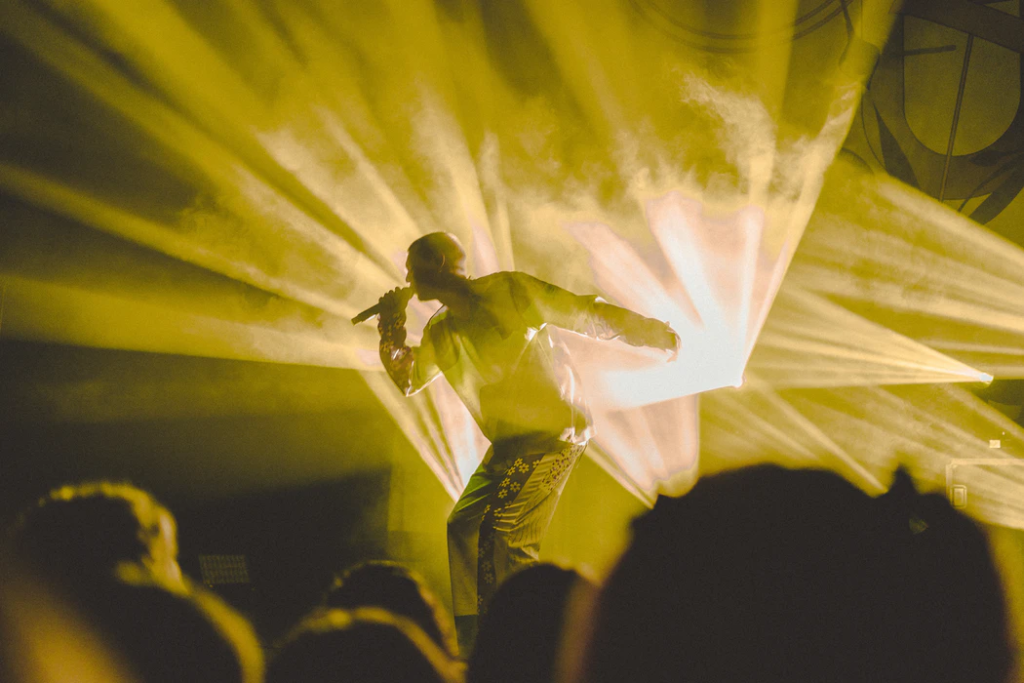
Conclusion
These were our tips and tricks for beginner rappers on how to get started in the rap world, as well as how to write a rap song start to finish: from writing your track’s lyrics to recording your voice.
Keep in mind that this is an introductory guide, so make sure to do some extra research on each topic that we’ve covered and to write and rap every day for keeping your songwriting skills and your flow in check. Also, don’t forget to take a look at our other guides for beginner rappers and producers.
We hope this article was helpful. If you have any more questions on writing your own song and making rap/hip hop, please feel free to contact us!
Ian Sniesko is an experienced music producer and musician who loves to share his knowledge about the best audio equipment for making and enjoying great music. For the past 6 years, Ian has written extensively about the audio equipment industry and has contributed to many of the top music magazines.